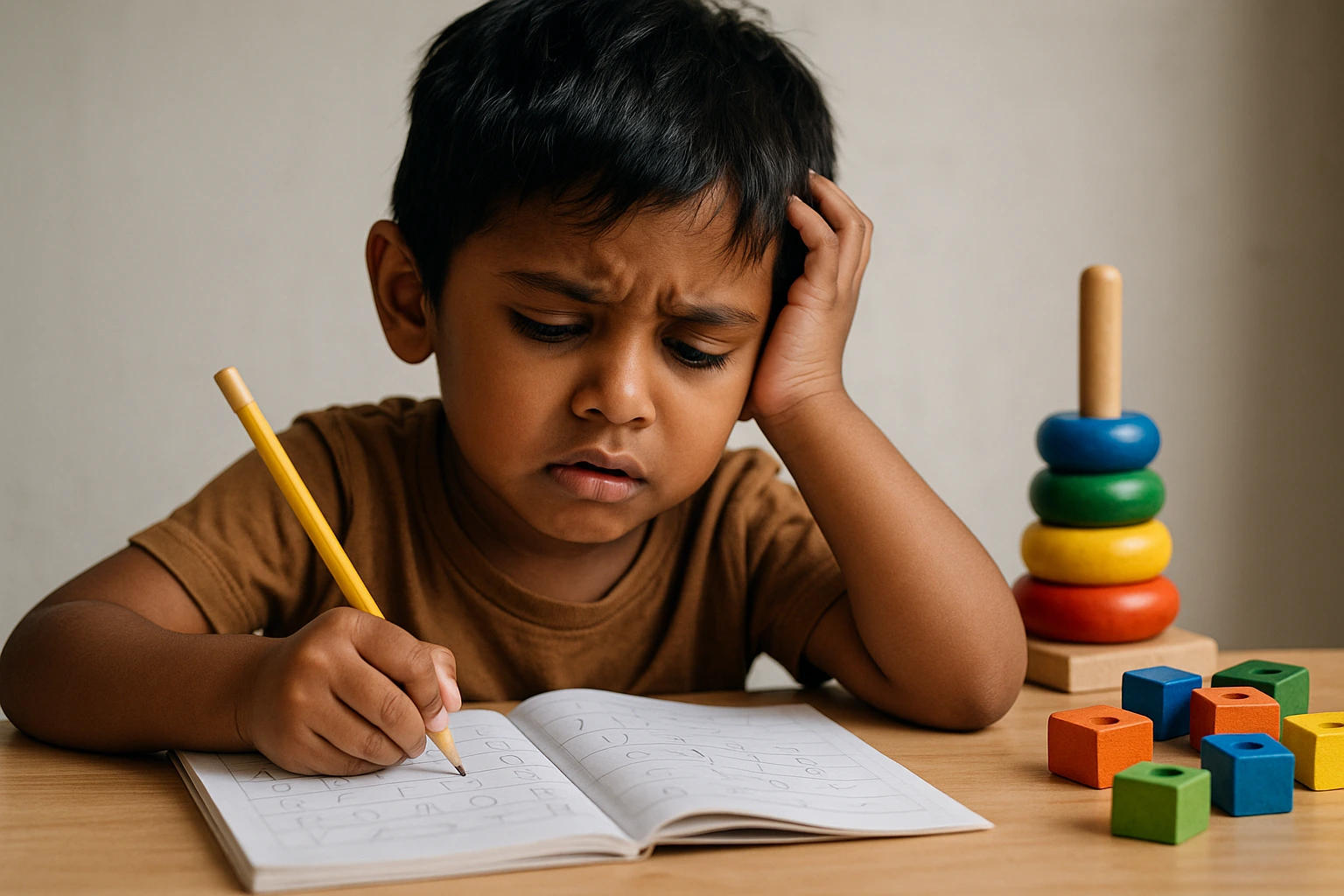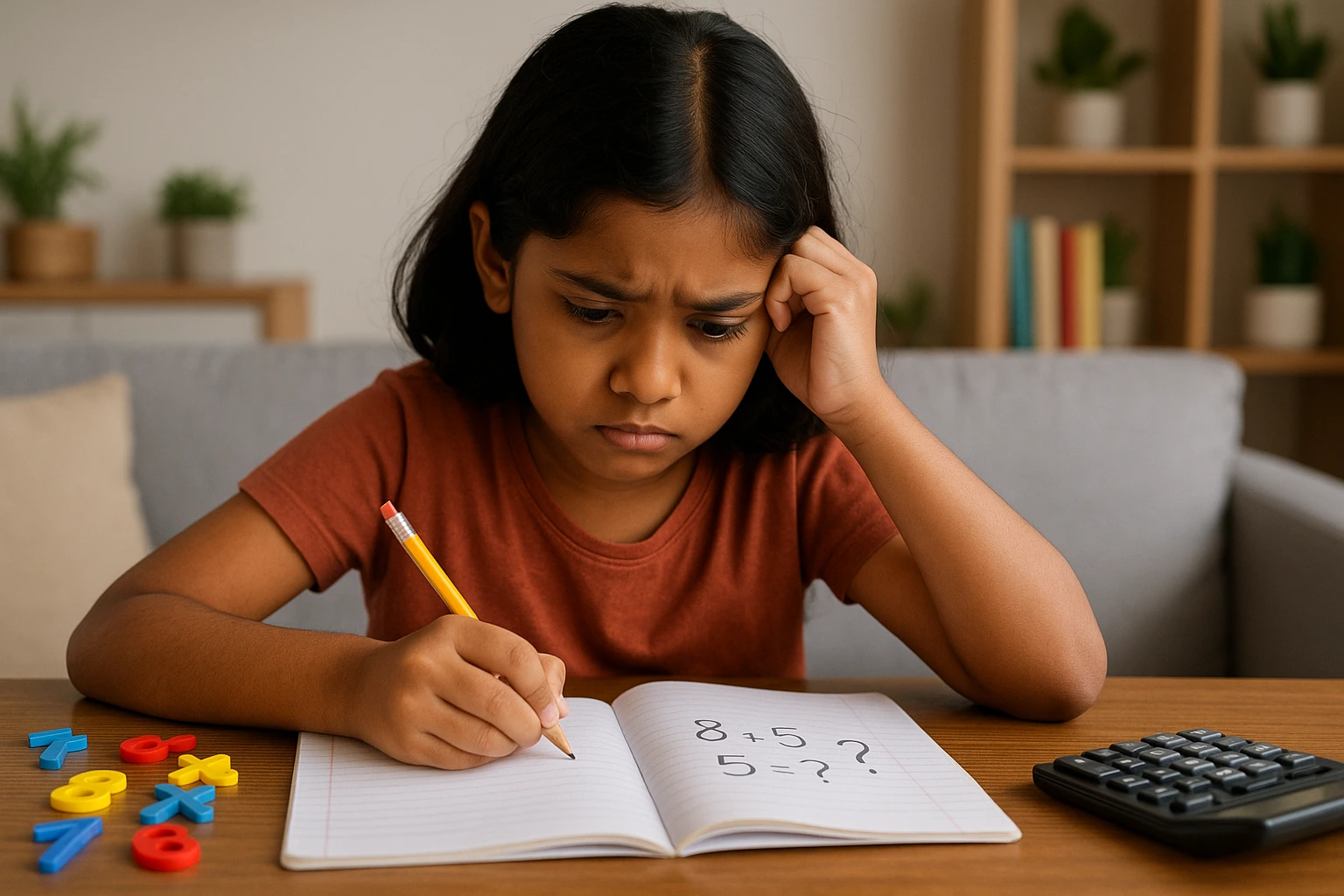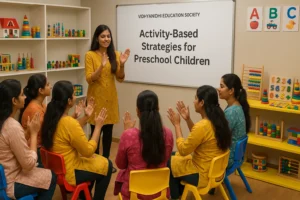
Define Learning Difficulties are a broad term that includes a wide range of disorders that have a direct impact on how a child learns. Learning difficulties can impact a child’s reading, writing, and mathematical skills, ultimately affecting their overall academic progress. To define learning difficulties, we consider the obstacles presented in the form of dyslexia, dyscalculia, dysgraphia, and others.
Most of the time, these problems develop when the child begins school. Learning difficulties are a result of neurological dysfunction, which causes the brain’s areas related to processing signals to be poorly designed, leading to difficulties in learning skills.
Understanding these Learning Difficulties helps educators identify areas of struggle for the child, enabling them to provide the right academic support and emotional assistance, which in turn allows children to thrive academically and socially in regular classrooms.
What are Learning Difficulties also known as?
Another name for learning difficulties is learning disabilities. These names often refer to conditions that affect a person’s ability to learn normally. The language may differ between nations and school systems, but the meaning is always very similar.
Here’s what learning difficulties are also referred to as:
- Learning Disorders: This term is commonly used in countries such as the USA and Canada to describe difficulties in learning areas, including literacy, language, and math.
- Specific Learning Disorder: This term is used in the U.K. for learning disorders affecting particular learning skills, such as reading, writing, and mathematics.
- Neurological developmental Disorders: This term is specifically used for conditions like Autism or ADHD that are caused by neurological dysfunction.
The terms mentioned above represent issues that are resultant of either environmental factors, genetic factors, or issues related to brain processing. When these are identified at a younger age, it helps to initiate the intervention procedure early, which can prevent any major problems associated with the learning disorder.
Click here to download the Best LD Course brochure!
For more details of the Best LD Course, Call / WhatsApp on +919321024137 / +919869866277.

Possible Causes of Learning Difficulties
The possible causes of learning difficulties can be a combination of environmental and genetic factors. There can be a variety of reasons why people experience learning challenges, which are often related to the way an individual’s brain has developed and functions. Why it happens is not necessarily obvious, and several factors are frequently associated with learning difficulties in children and adults. It is helpful to understand these possible causes to identify problems before they become too serious and to address them early on, so that support can be provided.
Possible causes of learning difficulties include:
Genetic factors
Genetics is a potent reason for challenges like ADHD or ASD. If in a family there has been any history of learning disorder, there is a greater chance that the following generation may have someone with a learning disorder.
Brain development issues
When the baby develops in the womb, certain issues can arise, leading to irregular brain development or delayed development, which may later affect the brain’s processing capacity once the child is born.
Birth Impediments
Complications such as very low birth weight, premature birth, or other medical emergencies can lead to learning difficulties, as there is a chance of the brain getting low oxygen.
Environmental Reasons
When the expecting mother is exposed to toxins or consumes tobacco-related items can negatively impact cognitive development.
Neurological conditions
Disorders such as ADHD or epilepsy frequently co-occur with learning difficulties, causing limitations in attention and processing speed.
Digging deep into the factors that lead to learning difficulties helps identify the root cause of the child’s problem, enabling the development of suitable solutions to tackle the challenges posed by the learning difficulties.
Click here to download the Best LD Course brochure!
For more details of the Best LD Course, Call / WhatsApp on +919321024137 / +919869866277.

Source: theconversation
Signs of a Learning Difficulty for Parents to Look Out for
Parents can intervene as soon as possible when they are aware of early signs of a learning difficulty. The indicators of a learning difficulty will differ depending on the child’s age and the specific area of difficulty, but some distinct patterns will emerge over time.
Common signs of a learning difficulty for parents to look out for include:
Poor vocabulary or Delayed language development
When a child, despite reaching an appropriate age, fails to attain milestones such as forming simple words or two-word sentences, it can indicate a developmental speech delay that requires urgent attention.
Reading fluency or writing struggles
Being unable to read simple words, missing letters while reading words, and being unable to write within the defined space can be warning signs.
Inability to perform simple math operations
When a child fails to perform simple math operations or is unable to arrange numbers in order, it can indicate a more significant issue.
Short attention span
When a child cannot focus for a long time, easily forgets instructions given to them, and has to be reminded repeatedly, it can be a warning sign.
Meagre coordination skills
When a child displays poor coordination skills, especially eye-hand coordination, which is essential for writing, or cannot follow directions, it can be a symptom of a larger learning disorder.
Mismanagement
The child struggles to keep his things organized and in place, leading to the constant loss of stationery items.
Avoidance of schoolwork
Consistent giving of reasons to evade school or schoolwork can be a possible reason for the child’s struggles with hesitating to attend school.
When parents notice these small signs and are well-aware of them, they can consult a concerned professional who can support the child’s overall well-being. With early support, students are in a better position to improve their learning outcomes, which gives a significant boost to their self-esteem.
Click here to download the Best LD Course brochure!
For more details of the Best LD Course, Call / WhatsApp on +919321024137 / +919869866277.

Categories of Learning Difficulties
Learning difficulties have a profound impact on how a child processes information and responds to it accordingly. Each learning difficulty affects a specific learning domain of the child, so obtaining a formal diagnosis helps to identify the learning disorder, which in turn assists in finding solutions for the real areas of concern.
The most prevalent learning disorders are listed below:
- Dyslexia – A Reading disorder affects how the child processes letters and cannot relate them to the corresponding sounds correctly.
- Dyscalculia – A math-related difficulty affects the child’s ability to understand basic math concepts, including value, time, and performing crucial tasks such as addition, subtraction, and multiplication.
- Dysgraphia – A difficulty where the child’s writing skills are impacted due to poor coordination skills.
- Auditory Processing Disorder (APD) – As the name suggests, the child with this disorder cannot process information that they hear, especially wen in a loud environment.
- Nonverbal Learning Disorder (NVLD) – The child with NVLD cannot interpret facial cues and has poor spatial awareness.
Each type presents unique challenges, but by receiving early help and interventions, children can develop the skills to manage their learning more effectively.
Therapies and Supports for Learning Difficulties
Therapies and supports are critical to understanding learning difficulties effectively. Early intervention, followed by structured and methodical approaches, can lead to significant improvements in both academic and emotional outcomes. To provide the right interventions, we need trained professionals to deliver them. The Vidhyanidhi Education Society (Govt. Regd.) offers a Learning Disability Course that enables educators and caregivers to provide appropriate support for children with learning disabilities.
Effective therapies and support include:
- Special education support tailored to individual needs
- Speech and language therapy for communication challenges
- Occupational therapy to develop motor and coordination skills
- Behavioral therapy for improving focus and social skills
- Use of assistive technology like audiobooks or speech-to-text tools
The Learning Disability Course employs various methods to identify difficulties, differentiate learning plans, and provide practical solutions. By completing this Learning Disability Course, you can provide support, guidance, and the right interventions to enable positive change in a child’s education.
Join our Best LD Course at Vidhyanidhi Education Society!
Click here to download the Best LD Course brochure!
For more details of the Best LD Course, Call / WhatsApp on +919321024137 / +919869866277.
FAQs
What is the Meaning of Learning Issues?
Learning problems are defined as one or more deficits in reading, writing, mathematics, or comprehension that impair school, work, or other daily activities, or are associated with below-average general intelligence.
How do you Support Someone with Learning Needs?
We can be patient; if they need more time, give clear and simple instructions, support visual aids, and adjust or modify activities to accommodate learning needs.
What Support Do You Need From Your Teacher?
Clear explanations, extra time, regular feedback, and learning tools help students with difficulties stay engaged and succeed in class.



